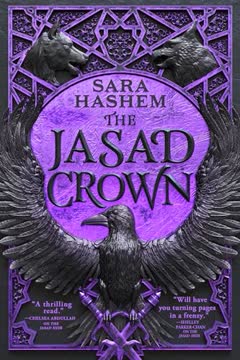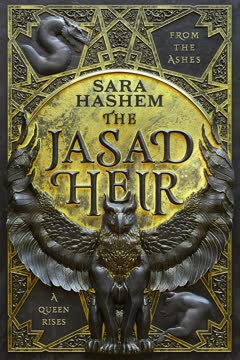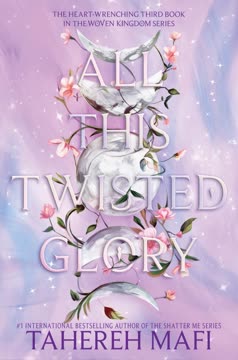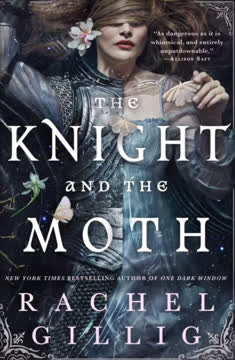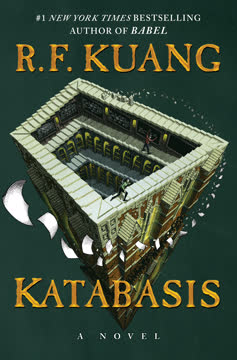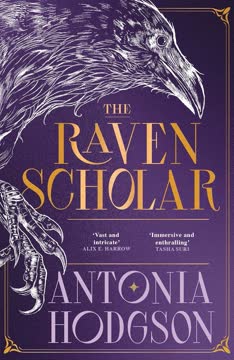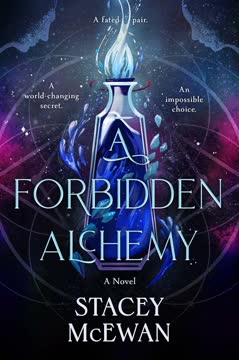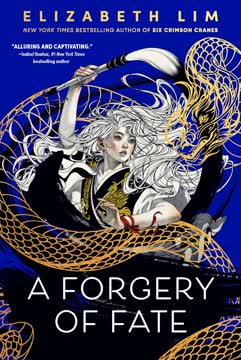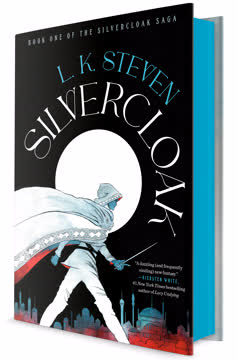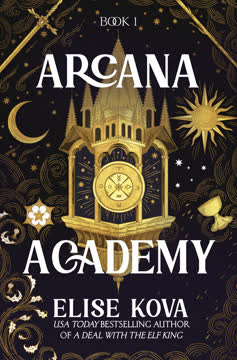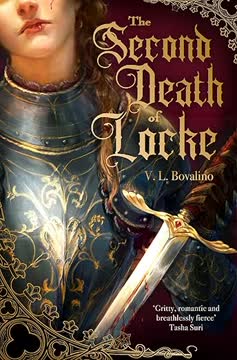Plot Summary
Blood and Betrayal
The story opens with Arin, the Nizahl Heir, whose childhood is shaped by his father's ruthless lessons and his mother's quiet sorrow. An assassination attempt marks his coming of age, and the Citadel's halls are rife with intrigue, cruelty, and the ever-present threat of violence. Arin's curiosity and cold precision set him apart, but his father's manipulations and the kingdom's legacy of bloodshed weigh heavily on him. The seeds of betrayal are sown early, as Arin learns that survival in Nizahl means sacrificing parts of himself—and others. The stage is set for a tale where power, pain, and loyalty are always in conflict.
The Heir's Dilemma
Arin's role as Heir is both privilege and prison. He navigates the treacherous politics of the Citadel, dealing with corrupt counselors and the ever-watchful eyes of his father. The lines between justice and cruelty blur as Arin is forced to make decisions that test his morality. His relationships with his guards and the people of Nizahl are fraught with tension, and his growing awareness of the kingdom's dark history—especially the legacy of magic and its suppression—haunt him. Arin's internal struggle between duty and desire for something more human and compassionate becomes the heart of his dilemma.
Magic Unleashed, Identities Revealed
Sylvia, living under an assumed identity, is thrust into the center of rebellion and magic. Her true heritage as Essiya, the lost Malika of Jasad, is revealed in a moment of crisis, unleashing her suppressed magic in a spectacular and dangerous display. The revelation shatters alliances and exposes her to new dangers, as both friend and foe must now reckon with her power and claim. The cost of magic—its madness, its history of violence, and its potential for hope—becomes a central question. Sylvia's struggle to reconcile her fractured identity and the expectations of those around her drives her forward.
Exile and Rebellion
Sylvia is taken by the Urabi, the Jasadi rebels, to their hidden mountain stronghold. There, she is confronted with the weight of her people's hopes and the scars of her own past. The Urabi are fractured, desperate, and wary of their new Malika. Sylvia must prove herself, navigating old wounds and new alliances, while the threat of Nizahl's armies and the other kingdoms' purges loom. The pain of exile—personal and collective—fuels the rebellion, and Sylvia's journey becomes one of reluctant leadership, haunted by guilt and the specter of failure.
The Gathering Storm
As the kingdoms tighten their grip on magic and the Jasadi people, the Urabi plot a desperate gambit: to reclaim Omal's throne through Sylvia's bloodline, or, failing that, to raise the legendary fortress of Jasad. The group is beset by internal doubts, betrayals, and the ever-present threat of discovery. Sefa and Marek, Sylvia's closest friends, are scattered and hunted, each facing their own trials. The narrative weaves between personal longing and the inexorable march toward war, as the characters are forced to choose between survival and sacrifice.
Monsters and Memories
The unleashing of ancient monsters—kitmers, dulhaths, and the legendary Sareekh il Ma'a—turns the land into a battlefield of myth and memory. Sylvia's magic, now unbound, becomes both weapon and curse, dredging up visions of past lives and the trauma of her ancestors. The siege of Mahair, a village dear to Sylvia, becomes a crucible where old wounds are reopened and new ones are forged. The cost of power, the madness lurking in magic, and the ghosts of the Awaleen haunt every step, as the characters are forced to confront what they are willing to become.
The Siege of Mahair
Mahair becomes the flashpoint of the kingdoms' violence, as Omalian soldiers descend and the villagers, aided by Sylvia and the Urabi, mount a desperate defense. The battle is brutal and personal, with friends and innocents caught in the crossfire. Sylvia's magic is both salvation and terror, as she unleashes powers that blur the line between hero and monster. The aftermath is marked by loss, guilt, and the realization that victory comes at a terrible price. The siege cements Sylvia's role as both leader and weapon, and the war's true cost becomes heartbreakingly clear.
The Sultana's Game
In Lukub, Sefa is drawn into the orbit of Sultana Vaida, a ruler as cunning as she is dangerous. The palace is a web of intrigue, where trust is a liability and every kindness is suspect. Sefa's struggle to survive and protect those she loves leads her into a deadly game with Vaida, whose ambitions threaten to ignite a new war. The ring of Baira, ancient magic, and the secrets of the Mirayah become central to Vaida's plans. Sefa's choices—between loyalty, love, and self-preservation—echo the larger conflicts tearing the kingdoms apart.
The Victor's Choice
As the war escalates, the characters are forced to make choices that will define them. Arin's loyalty to Nizahl, his growing feelings for Sylvia, and his own heritage as a conduit for magic come to a head. Sylvia must decide whether to trust Arin, to risk everything for her people, or to sacrifice herself to prevent greater destruction. The bonds between friends, lovers, and enemies are tested to their breaking point. The narrative crescendos with betrayals, confessions, and the realization that no victory comes without loss.
The Fortress Rises
The long-awaited moment arrives: Sylvia, at the cost of her own sanity and life, raises the fortress of Jasad. The act is both triumph and tragedy, as the magic threatens to consume her and the line between savior and destroyer blurs. The fortress is a symbol of hope and a prison, and the consequences of its return ripple across the kingdoms. The price of power—personal and collective—is paid in blood, memory, and the loss of self. The fate of Jasad, and of Sylvia, hangs in the balance.
Madness and Sacrifice
Sylvia's struggle with magic-madness reaches its peak. The memories of Rovial, the Awaleen, and countless past lives threaten to erase her. Arin, now Supreme of Nizahl, must choose between love and duty, between saving Sylvia and saving the world. The narrative becomes a meditation on what it means to be human, to lead, and to love in the face of annihilation. Sacrifice—willing and unwilling—becomes the only path forward, and the characters are forced to confront the limits of their power and the depths of their loss.
The Supreme's Fall
Arin's confrontation with his father, Supreme Rawain, is the climax of a lifetime of manipulation, cruelty, and ambition. The truth of Arin's heritage, the horrors of magic mining, and the legacy of the Awaleen are laid bare. The fall of the Supreme is both personal and political, as Arin claims the crown at a terrible cost. The old order is shattered, and the path to a new future—uncertain, dangerous, and full of possibility—is opened. The personal and the political are inextricably linked, and the fate of the kingdoms hangs on the choices of a few.
The Siege of Jasad
The armies of Nizahl, Lukub, and the other kingdoms converge on Jasad. The battle is fought not just with swords and magic, but with memory, identity, and the ghosts of the past. The fortress stands as both shield and shackle, and the fate of the Jasadi people is decided in blood and fire. The cost of victory is measured in lives lost, friendships broken, and the irreparable wounds left on the survivors. The siege is both an ending and a beginning, as the world is remade in the aftermath.
The Bridge of Mist
The story reaches its emotional climax on Sirauk Bridge, the site of ancient betrayal and new hope. Sylvia, now fully aware of her legacy as Rovial's vessel, must choose between self-destruction and the possibility of a new future. Arin, transformed by love and loss, risks everything to reach her. The bridge becomes a liminal space, where the boundaries between life and death, past and present, are blurred. The choices made here will echo for generations, and the story's central question—what does it mean to survive?—is answered in sacrifice and love.
The Awaleen's Return
In the aftermath, the Awaleen—Dania, Baira, Kapastra, and Rovial—are reunited in the entombment. The cycle of magic, memory, and rebirth is explored, and the possibility of healing and change is offered. The kingdoms, now forever altered, must reckon with the return of magic and the lessons of the past. The personal stories of Sefa, Marek, and the others find resolution, as the world begins to rebuild. The Awaleen's presence is both a reminder of the past and a promise for the future.
The Price of Power
The cost of victory is tallied: lives lost, loves mourned, and the scars left on the survivors. Sefa becomes Sultana of Lukub, carrying the weight of her own grief and the hopes of her people. The kingdoms are reshaped by new rulers, new alliances, and the return of magic. The personal and the political are forever entwined, and the story's central themes—sacrifice, survival, and the search for meaning—are brought into sharp relief. The price of power is never paid in full, and the future remains uncertain.
The Last Gasp of War
In the final moments, Arin returns to Sirauk Bridge year after year, waiting for the impossible. The world has changed—magic has returned, the kingdoms are at peace, and the scars of war are slowly healing. But some wounds never close, and some loves never die. The story ends with hope and longing, as the boundaries between past and present, life and death, are crossed once more. The legacy of Jasad, of the Awaleen, and of those who fought for a better world endures, carried in memory, magic, and the promise of return.
Characters
Arin of Nizahl
Arin is the Heir and later Supreme of Nizahl, shaped by a childhood of violence, manipulation, and impossible expectations. His relationship with his father, Rawain, is a crucible of pain and ambition, while his mother's quiet sorrow haunts him. Arin is brilliant, cold, and ruthlessly logical, but beneath his armor lies a deep longing for connection and meaning. His journey is one of self-discovery, as he confronts the legacy of magic, the horrors of his own power as a conduit, and the possibility of love with Sylvia/Essiya. Arin's arc is a study in the cost of leadership, the burden of history, and the redemptive power of vulnerability.
Essiya/Sylvia (Malika of Jasad)
Sylvia, known to her people as Essiya, is the lost Malika of Jasad, living in hiding and haunted by the trauma of her past. Her journey from reluctant fugitive to leader of a broken people is marked by guilt, self-doubt, and the ever-present threat of magic-madness. As the vessel for Rovial's magic, she is both savior and destroyer, her identity fractured by memory, power, and the expectations of others. Her relationships—with Sefa, Marek, Arin, and the Urabi—are the heart of her humanity, even as her magic threatens to consume her. Essiya's story is one of survival, sacrifice, and the search for a place to belong.
Sefa/Sayali
Sefa is Sylvia's closest friend, a seamstress and vagrant whose life is defined by loyalty, compassion, and quiet strength. Her journey takes her from the keep in Mahair to the heart of Lukub's palace, where she must navigate the deadly games of Sultana Vaida. Sefa's refusal to abandon those she loves, even in the face of betrayal and loss, is both her greatest strength and her deepest vulnerability. Her eventual rise to Sultana of Lukub is a testament to her resilience and the power of kindness in a world ruled by cruelty.
Marek Lazur
Marek is the golden-hearted trickster, Sylvia and Sefa's steadfast companion. His humor and charm mask a deep well of pain, shaped by the deaths of his siblings and the burdens of survival. Marek's journey is one of love and sacrifice, as he risks everything for his friends and ultimately pays the ultimate price. His death is a devastating blow, but his memory endures as a symbol of hope, loyalty, and the cost of war.
Namsa
Namsa is Dawoud's niece and a leader among the Urabi. Her strength, both physical and emotional, is matched by a deep sense of duty and a lingering grief for her uncle's death. Namsa's relationship with Essiya is fraught with suspicion, respect, and eventual trust. She is a bridge between the old wounds of Jasad and the possibility of a new future, her arc defined by forgiveness, leadership, and the struggle to balance justice with mercy.
Efra
Efra is a member of the Urabi, marked by bitterness, suspicion, and a deep-seated anger at the legacy of Jasad's rulers. His magic allows him to sense and manipulate emotions, making him both a valuable ally and a dangerous adversary. Efra's relationship with Essiya is antagonistic, but beneath his hostility lies a desire for truth and a fear of being betrayed again. His arc is one of grudging acceptance, as he learns to trust and to see the possibility of change.
Sultana Vaida
Vaida is the Sultana of Lukub, a ruler whose beauty, cunning, and ruthlessness are legendary. Her pursuit of power—through ancient relics, the Mirayah, and the manipulation of those around her—drives much of the conflict. Vaida's relationship with Sefa is a study in power dynamics, and her ultimate fate is a cautionary tale about the cost of ambition and the dangers of unchecked magic. She is both villain and victim, a product of her lineage and her own choices.
Supreme Rawain
Rawain is the Supreme of Nizahl, Arin's father, and the architect of much of the story's suffering. His obsession with power, his willingness to sacrifice anything and anyone, and his manipulation of magic and people make him a formidable antagonist. Rawain's relationship with Arin is a crucible of pain, love, and betrayal, and his eventual fall is both a personal and political reckoning. He embodies the dangers of legacy, the corruption of power, and the tragedy of a life spent in pursuit of control.
Maia
Maia is a member of the Urabi, a lahwa whose magic allows her to enter and manipulate minds. Her kindness and empathy are matched by the terrifying potential of her abilities. Maia's journey is one of self-acceptance, as she learns to wield her power responsibly and to find her place among her people. Her relationship with the others, especially Efra and Lateef, is a source of warmth and hope.
Lateef
Lateef is a leader among the Urabi, a man of deep knowledge, patience, and quiet strength. He serves as a mentor to Essiya and the others, guiding them through the complexities of magic, history, and leadership. Lateef's arc is one of endurance and hope, as he helps shepherd his people through the darkest of times and into the possibility of renewal.
Plot Devices
Duality of Identity and Memory
The narrative is driven by the tension between hidden and revealed identities—Sylvia/Essiya, Arin's true heritage, the legacy of the Awaleen. Memory, both personal and collective, shapes the characters' choices and the world's fate. The use of visions, hallucinations, and the resurfacing of past lives blurs the line between self and other, past and present. This duality is mirrored in the structure of the story, with shifting perspectives, timelines, and the interplay between personal and political histories.
Magic as Both Blessing and Curse
Magic is at the heart of the story's conflict, both a source of hope and a harbinger of madness and destruction. The legacy of magic-madness, the dangers of unchecked power, and the trauma of magic mining are explored through personal and historical lenses. The narrative uses magic as a metaphor for trauma, inheritance, and the struggle for agency. The fortress, the kitmers, and the relics are all symbols of magic's potential and its peril.
Enemies-to-Lovers and Found Family
The central romance between Arin and Essiya is a classic enemies-to-lovers arc, complicated by political, personal, and magical stakes. Their relationship is a crucible for the story's themes of trust, vulnerability, and redemption. The found family of Sefa, Marek, and the Urabi provides a counterpoint to the blood ties that so often lead to betrayal. The narrative structure weaves these relationships into the larger tapestry of war and survival.
Cyclical History and the Weight of Legacy
The story is structured around cycles—of war, of magic, of memory. The entombment of the Awaleen, the rise and fall of kingdoms, and the recurring threat of magic-madness all speak to the difficulty of breaking free from history's grip. Foreshadowing, prophecy, and the repetition of key events and symbols reinforce the sense of inevitability, even as the characters struggle to forge a new path.
Sacrifice and the Cost of Survival
The narrative is built on choices—between self and others, between survival and principle, between love and duty. Sacrifice is a constant theme, whether in the form of personal loss, the surrender of power, or the willingness to die for a cause. The story interrogates the price of survival, the meaning of heroism, and the possibility of redemption in a world built on blood and betrayal.
Analysis
The Jasad Crown is a sweeping fantasy that interrogates the cost of survival in a world built on cycles of violence, betrayal, and the legacy of power. At its heart, the novel is about the struggle to reconcile the past with the present—to find humanity in the face of trauma, to build community in the ruins of betrayal, and to choose love and hope even when history seems destined to repeat itself. The story's exploration of magic as both blessing and curse is a powerful metaphor for the inheritance of pain and the possibility of healing. The characters' journeys—from Arin's cold logic to Essiya's fractured identity, from Sefa's steadfast heart to Marek's tragic loyalty—offer a meditation on what it means to lead, to love, and to survive. The novel's structure, with its shifting perspectives, cyclical history, and interplay of personal and political stakes, invites readers to question the stories we tell about ourselves and our world. Ultimately, The Jasad Crown is a testament to the power of choice, the necessity of sacrifice, and the enduring hope that even in the ashes of the past, something new can be born.
Last updated:
Review Summary
The Jasad Crown is a highly anticipated sequel that delivers an emotionally intense and satisfying conclusion to the duology. Readers praise the complex characters, especially Sylvia and Arin's relationship, the rich Egyptian-inspired fantasy world, and the gripping plot twists. The book explores themes of duty, identity, and love amidst political intrigue and magic. While some found the pacing slow at first, many consider it a masterful ending that left them emotionally devastated. The epilogue, in particular, received strong reactions from readers.
